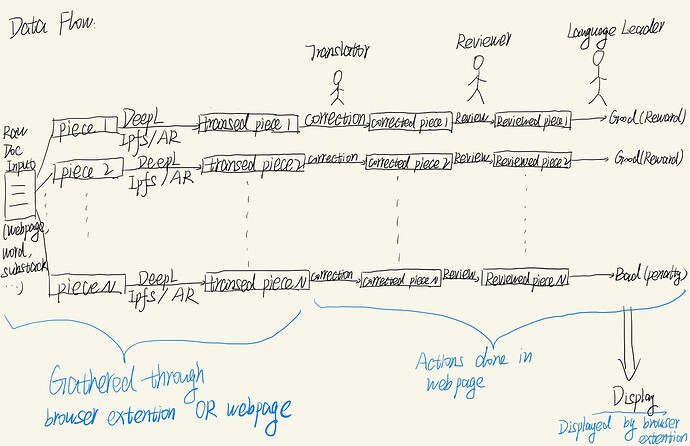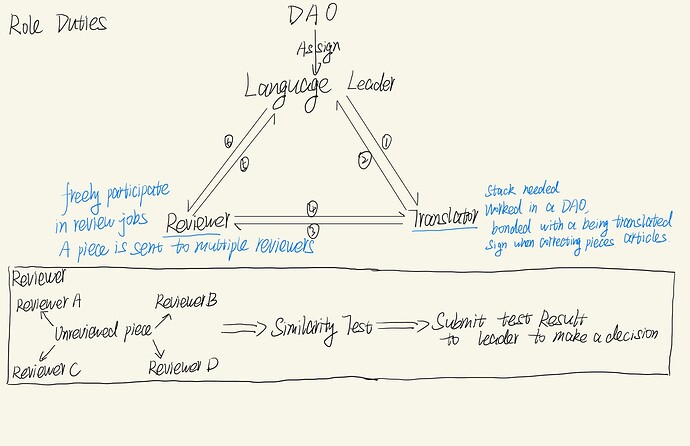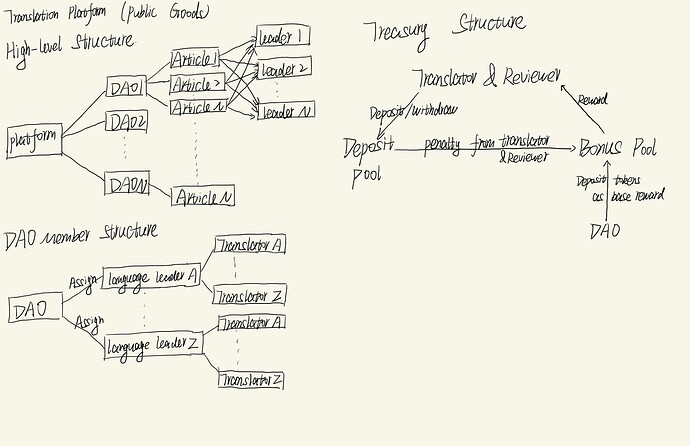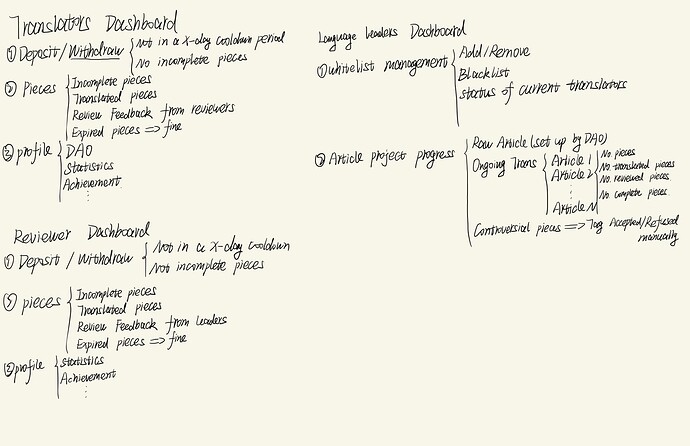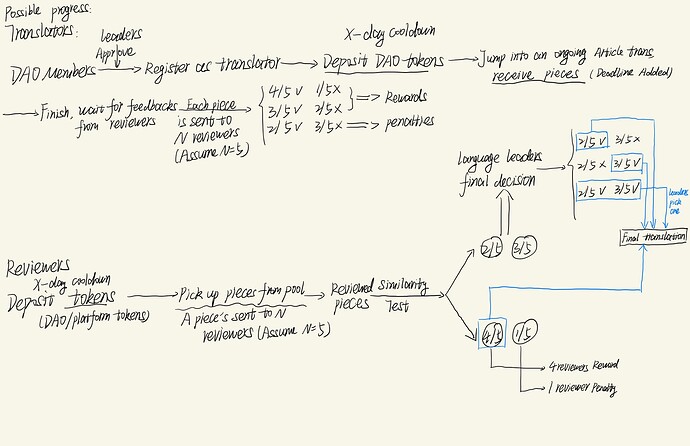RFC written by Alex1237 in reference to the previous RFC.
What is it?
A suite of translation tools that facilitate and incentivize the community to create high-quality, localized text resources in Web3.0.
Why do I come up with the idea?
The DAO has a large, rapidly increasing number of wiki pages, forum posts, documents, etc which are written in English. To be truly inclusive, we should translate all these resources into multiple languages accurately and on time.
The current translation process is largely manual and not scalable:
So far, we have translations for newsletters and wiki pages. The current way relies on volunteer work which does not provide enough incentive for the general community to participate in and produce high-quality translations, although we have 7 members in the translation team.
This could be a tool provided by D_D for other DAOs as well.
If we could get the economics right, the tool could even generate income for the DAO and everyone who works on the translations.
If we build it smartly, it may become a public good, widely used by other DAOs or individuals.
How does it work?
Basic Data Flow
A brief introduction to the platform:
Our platform needs 3 roles: translators, reviews, and language leaders. Their duties will be covered in the next section. First, select a source as input, such as webpage, word, notion, or substack. The platform could cut contents into pieces and store those pieces into IPFS or Arweave after being translated through DeepL API. Second, those translated pieces are corrected and reviewed by translators and reviewers, respectively. Next, language leaders handle special cases (illustrated in subsequent sections), and rewards and penalties are executed automatically. Finally, the translated articles will be displayed by a browser extension.
Role Duties
We have 3 roles in our system: language leaders, translators, and reviewers.
- Language leaders are assigned or elected by the DAO. They whitelist members from DAO communities and add their addresses to the system. Bad actors are removed by leaders if needed. Another assignment for leaders is to set up content to be translated (Leaders could introduce sources through the platform or a browser extension). In the future, leaders could list translation rules for the system (eg, agreed translation of phrases and expressions).
- Whitelisted DAO members deposit DAO tokens into a deposit pool with a cooldown period, to register as translators. Then, translators choose which article they’d like to work on. The system distributes several translated pieces without correction. After correcting article pieces, translators need to sign with their wallets. Note that translators are not allowed to change pieces or switch articles, once they are proofreading. An X-day deadline is also set for each proofreading progress. Translators who give up pieces on hand or do not finish corrections before the deadline will be punished by deposit deduction.
- Proofread pieces are collected by the system and removed to a piece pool under review.
- Like translators, a deposit is a must and reviewers could pick up pieces from the pool without limit to a DAO. In other words, reviewers may work on multiple articles in various DAOs simultaneously and should complete review tasks before the deadline. Any violation may cause a penalty on their deposits.
- To reduce overheads to leaders, each piece is sent to X reviewers and the system does a similarity test. Only controversial results will be transferred to leaders for final decisions. Otherwise, the system automatically accepts the piece with the highest similarity as translation results. Other similar pieces are tagged as accepted and reviewers get rewards. Eg: 4/5 pieces are similar and tagged as accepted, and the reviewer of 1/5 piece will be punished. If pieces are divided into 2/5 and 3/5, leaders should determine which group is accepted.
- Leaders receive pieces with problems and make decisions.
Structures
High-level Structure
Our platform could hold multiple DAOs with many article projects. Each leader represents a language, responsible for article projects translation.
DAO Member Structure
Each DAO should assign a leader to a language and the leader manages multiple translation projects.
Treasure Structure
We have two treasure pools: deposit pool and bonus pool. As its names imply, translators and reviews could deposit and withdraw their funds. Any violation will cause penalties. Those penalties from translators and reviewers will be added to a bonus pool DAOs set up with their governance tokens.
Essential Dashboard of each role
Whole progress flow
How to display translations?
Currently, my idea is to show translations using a browser extension, which keeps the contents’ formats.
Possible issues
- Similarity tests among review results may not work if most reviewers are bad actors. A good algorithm is needed for similarity tests. otherwise, language leaders act as reviewers.
- Translators deposit DAO tokens into the pool, but which tokens should reviewers use for a deposit, a platform token, or limiting reviewers to a DAO?
- Reviewers’ abilities. Professional and trusted reviewers could ensure that translations meet s specific level of quality and consistency. Do we need verification progress for reviewers?
Dev Roadmap
Currently, we are in concept definition and discussion step. All suggestions are welcome. I’d like to figure out two questions:
- Is it worth designing and implementing this complex system? Because i18n is just an optional step of success, it’s possible for our dao to throw translation tasks to commercial teams, though which may be against the DAO’s intents. If not, seeing this project as a long-term aim is an appropriate choice.
- Does this project make translation complex, any redundant role or step? Now, we are relying on voluntary efforts, not a substainable method for i18n. If so, what does your translation progress look like in your mind?
Welcome to any advice and glad to talk in a meeting if available.
